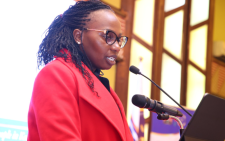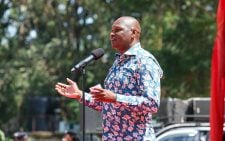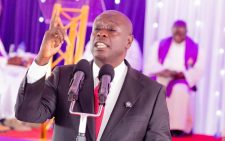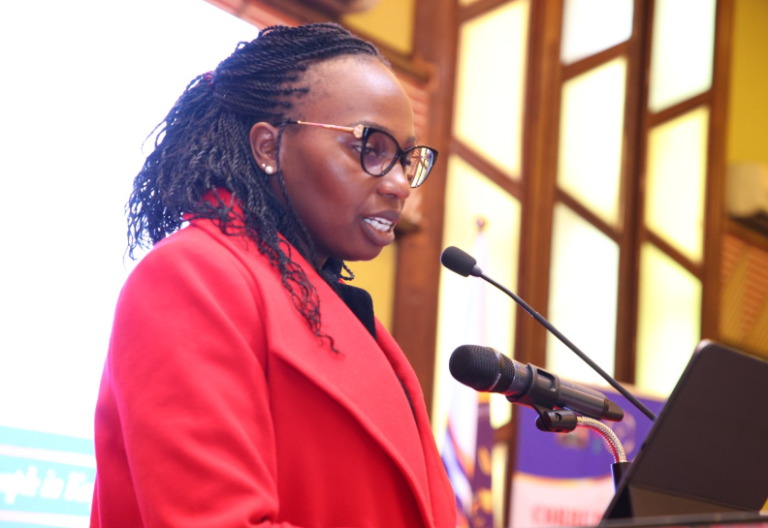Kenyan artistes are weathering this storm by taking overseas music tours

Since the onset of the Covid-19 pandemic, one of the vastly affected industries has been the entertainment industry, specifically the live-show industry, and including ancillary jobs such as stage management, show producing, promotion, supply and pyrotechnic.
But as travel restrictions ease up and business operations slowly normalising as Covid-19 vaccine rate accelerate, especially in Western countries, there is a distinct trend noted where local artistes are moving to cash in on opportunities in these green-zone areas.
The likes of Redsan, Nonini, Arrow Bwoy, Nadia Mukami, Khaligraph Jones, Octopizzo and King Kaka are some Kenyan acts on overseas tours to offset the local deficit in show money.
According to Mykie Mutooni, a concert promoter, it’s all about business and making money and nothing else.
“Music is very much a business, and promoters will do things that make sense on that basis.
Currently, Amapiano is the wave; parties that prioritise consumer safety, so these are the major take-outs at this point in time,” he tells Spice.
Frankie Theuri, a major player in the Kenya’s events scene, claims that it’s not an easy task getting event finances, hence the process of selecting acts has to be careful, and not experimental.
“Think target audiences. Remember we also have to get corporate funding to host these events, and that is a major challenge here.
Finding such entities and those that align with our vision while being able to capitalise on the opportunity is hard. In future, we would love to express ourselves and pull off events that are adventurous and out of the ordinary,” he says.
Relationship control
The Address Media founder Benson Kirobi says the reasons Kenya’s biggest artistes are losing out on major stages locally is due to poor relationship management and a somewhat lack of professionalism.

“Kenyan music scene is tough just like any other. Acts who have invested time to observe and study the game are more likely to penetrate the scene unlike those who only focus on producing content without strategies of reaching out to the masses, which in this case is creating music and spamming everyone on your mailing list.
When you are keen to learn how to network and build strategic relationships with the right persons, you are equipped to manoeuvre through the market all the way to the performance front,” he opines.
He argues that success and relevance is based on the ability to leverage relationships you create with other people in the system and channelling your effort into promotions and media campaigns.
He is also an firm believer in creating effective strategies, implementing them, and putting money behind the brand if need be.
Nairobi-based artiste Sabi Wu has constantly been performing throughout the pandemic from being booked and also mobilising his own independent events.
He has been a regular in club shows, as well as outdoor parties in and out of Nairobi, such as the July event Summertides in Diani, Kwale county.
He believes that fans wield the power to decide if one is worth their time or not, hence why he is a regular ticket and name on numerous line-ups.
“My fans and supporters are the reason why. They always turn up for my shows and show support everywhere I go.
That is why I am booked regularly. The key to getting booked regularly is putting in work in the studio, interacting with fans and giving my all when I perform,” he mentions.
Better pay overseas
Kaka Empire honcho Dennis Njenga reveals that as a business, artistes will always seize the better opportunities.
His acts Femi One and King Kaka have embarked on tours to countries such as Burundi, Tanzania, and Uganda among others, regardless of the tedious processes they encounter on their travels.
“We have a large number of Kenyans who live abroad, whether in Africa, Europe or America.
One of the biggest markets of music consumers is America due to the large population of Kenyans living and working there.
They always request that artistes tour to perform, especially during summer when many of them are on long holidays.
So, promoters based there, whose main task is organising shows for African performing stars, are the bridge we build connections with to enable us carry out these tours,” he intimates.
Musician Naiboi says the money component is a huge factor in influencing artistes choice of overseas shows over local ones.
He says in conclusion, “It depends with the kind of event you are performing at.
The pay is better there, so definitely if an artiste is going to perform overseas, it’s because they’re going to make more money.
“However, the pay is not as good now as it used to be before Covid-19; you do not expect more money even on local shows because of the number of people turning up for the event is also minimised.”








